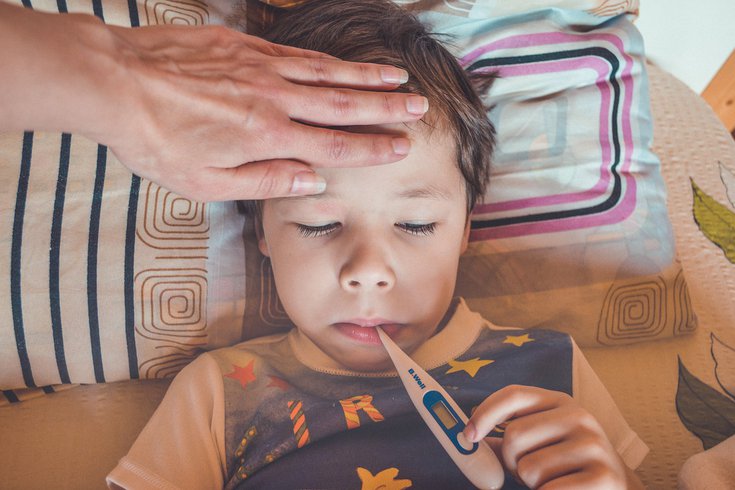
December 13, 2021
 Victoria Borodinova/Pixabay
Victoria Borodinova/Pixabay
When a child is experiencing a seizure, it is important for the parents to remain calm. Gently place the child on the floor on his side to prevent choking. And make sure there are no harmful objects nearby.
When a high fever triggers seizures in a child, the experience can be very scary for the parents, but most of the time, the seizures will resolve on their own.
Febrile seizures are convulsions that can occur when a young child has a fever above 100.4 degrees Fahrenheit. They usually last for a few minutes, but the fever may continue for some time.
Most of these seizures are mild and don't need any treatment or result in any complications, according to health experts. Some children may feel sleepy afterwards.
"Febrile seizures are common," Dr. Sara Molisani, a physician in the division of neurology at Children's Hospital of Philadelphia, told TODAY last month.
"Among children in the United States, about 2-4% of children will have a febrile seizure. The peak age for febrile seizures to occur is 1 to 2 years; however, children can have febrile seizures any time between 6 months and 5 years of age."
The most important thing parents can do is to keep their children safe during a seizure.
During a febrile seizure, a child may convulse, shake and twitch all over. They may roll their eyes and pass out. Some children may vomit or urinate during the convulsions.
If a child is experiencing a seizure, it is important for parents to remain calm. Gently place the child on the floor on her side to prevent choking. Make sure there are no objects nearby that could hurt the child.
Loosen any clothing around the head and neck and watch for signs of breathing problems. If the child is struggling to breathe, her face will turn a bluish color.
Don't put anything in the child's mouth or try to hold or restrain the child during an episode. Do not put the child in a bath.
Time the seizure. If it lasts for more than five minutes or the child turns blue, call 911 immediately. If the seizure resolves within five minutes, call the child's pediatrician for an appointment. It is still important to identify and treat the cause of the fever.
If the child is under age 1, at risk of meningitis or vomiting or having diarrhea during the convulsions, then the doctor may suggest further testing.
Complex febrile seizures are those that last longer than 10 minutes and happen more than once in a 24-hour time period. They generally also involve only one part or one side of the body. A doctor may prescribe anti-seizure medicine if a child has multiple episodes.
Even if the seizures are mild and resolve quickly, experts advise calling 911 if a child has more than one in a 24-hour period.
Children who have missed some vaccines and have a febrile seizure could be at higher risk of meningitis, which requires emergency attention. Symptoms include a stiff neck, constant vomiting and a bulging soft spot on the head of babies.
There is no specific cause of febrile seizures, but experts say certain viruses such as the herpes virus are more likely to cause them than others. The way a child's developing brain reacts to high fevers also may play a role.
Sometimes a seizure can be the first sign that a child is ill and can come on very suddenly.
These types of seizures are different than epileptic seizures – although having them slightly increases a child's risk of developing epileptic seizures, according to the Epilepsy Foundation.
Toddlers who have a family history of febrile seizures and those who have already had one are more at risk, especially toddlers who had their first seizure before 15 months. While febrile seizures are not preventable, most children grow out of them by age 5.